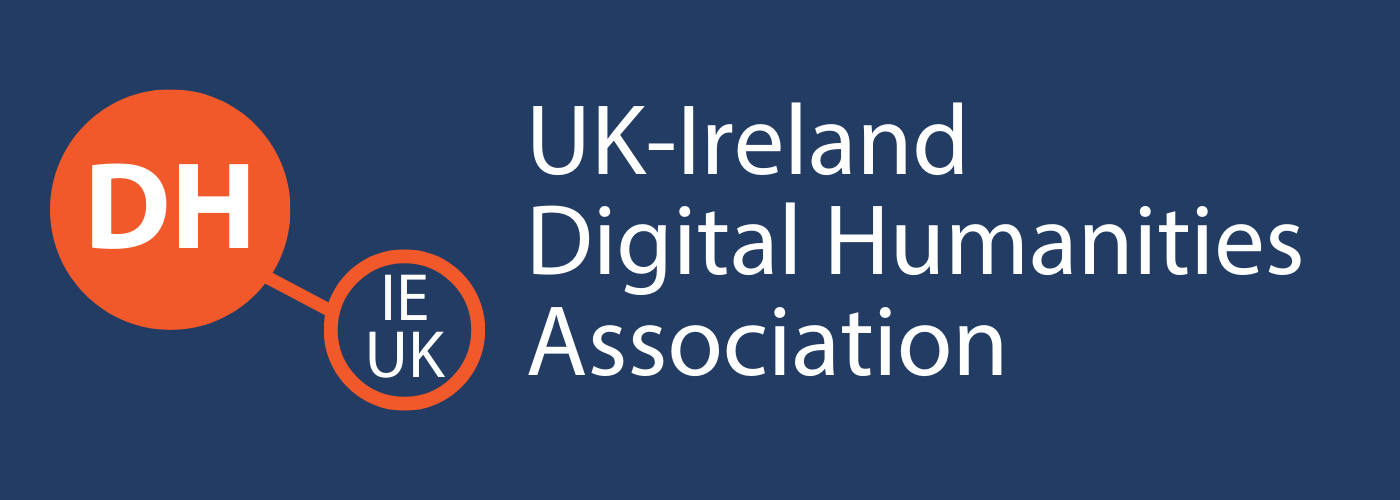Digital Humanities and Advocacy
Communicating the value and impact of DH in teaching, research, and infrastructure developmentWe have now published the discussion paper resulting from this event: Communicating the Value and Impact of Digital Humanities in Teaching, Research, and Infrastructure Development.
The Network’s second event was held on 16th March 2021 and organised by the University of Glasgow. It focused on the theme of advocacy: communicating the value and impact of DH in teaching, research, and infrastructure development.
About this Event
Digital Humanities and advocacy: communicating the value and impact of DH in teaching, research, and infrastructure development.
How should a DH Association for the UK and Ireland carry out advocacy? How can we ensure that any Association that emerges has both the authority and representation to speak on behalf of DH communities of practice? What are the entities that need expert input from the DH community, and how can the Association ensure that it informs and shapes policy and other decision making processes?
The aim of this workshop was to discuss the policy areas in which DH interests need to be heard, and discuss some shared, strategic challenges where a united voice of those working in DH is needed. The workshop explored the key issues that affect DH development in the UK and Ireland that have policy implications, areas where expert opinions and guidance may be needed, and the audiences for these views.
We focused on three key areas where advocacy is needed in DH: Research, teaching, and infrastructure.
In research, these issues include the way that DH tools, methods, and outputs are assessed for national research assessment exercises and peer review of digital content, tools, methods and research outputs, and the impact of open access publishing on DH research outputs.
For teaching, central issues have emerged around shared curricula and teaching assessment, especially the lessons learned from recent experimentation with online course delivery.
In terms of infrastructure development, what are areas for investment that will impact the development and uptake of DH? And what can we do to effect engagement with those shaping policy regarding key infrastructure investment? Is there a need for a shared view? How can we advocate for DH, and to whom? How best can we facilitate international cooperation and collaboration: in the UK’s post-Brexit landscape, how can we stay connected despite the loss of schemes like Erasmus? How can we ensure continued UK DH involvement in H2020?
And structurally, what model of DH Association in the UK and Ireland would underpin an advocacy agenda? What membership models would support an organisation that has a resonant and authoritative ‘voice’ for our field?
Workshop Schedule
| Schedule | Outline |
| 10.00 – 10.30 | Welcome to participants |
| 10.30 – 11.30 |
Reshaping Research
|
| 11.30 – 11.45 | Comfort break |
| 11.45 – 12.45 |
Transforming Teaching
|
| 12.45 – 13.45 | Lunch |
| 13.45 – 14.45 |
Innovating Infrastructure
|
| 14.45 – 15.00 | Comfort break |
| 15.00 – 15.45 |
Panel & Open Discussion
|
| 15.45 – 16.00 | Summary and next steps |
